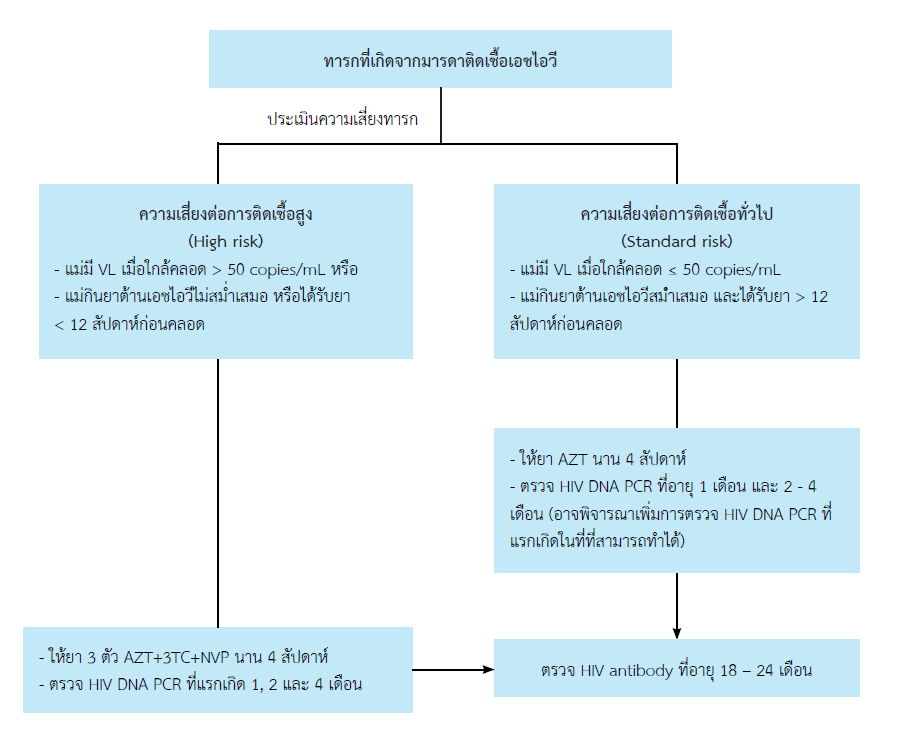Healthcare Management for Pregnant Women Living with Human Immunodeficiency Virus at Siriraj Hospital
Main Article Content
Abstract
Human immunodeficiency virus (HIV) has been one of the global concerns. At the moment, owing to the development of better and newer anti-viral drugs as well as the great support provided by the Government of Thailand, pregnant women living with HIV receive an equal access to the sufficient standard of care, including free routine screening, medication, care and referral system; and social support as well as long term follow-up for children who are born to HIV-infected mothers. This results in the current low rate of new HIV infection cases aiming to the zero case in the year 2030. The 2021/2022 Thai National Guideline for HIV/AIDS provides information and management guidelines for all HIV-infected groups, including pregnant women. However, some obstetric part remains missing due to the lack of clear supporting evidence; or the practice guidelines from different countries are not similar due to each country’s resources and context. As such, the Siriraj clinical pathway has been developed with great collaboration from the Unit of Infectious Diseases, Department of Obstetrics and Gynecology, the Department of Nursing, the Department of Pediatrics, the Department of Preventive and Social Medicine and all related units to provide the best healthcare management to this population. And, it may also be applicable to other hospitals in Thailand.
Article Details

This work is licensed under a Creative Commons Attribution-NonCommercial-NoDerivatives 4.0 International License.
References
Chuachoowong R, Shaffer N, Siriwasin W, Chaisilwattana P, Young N, Mock P, et al. Short-course antenatal zidovudine reduces both cervicovaginal human immunodeficiency virus type 1 RNA levels and risk of perinatal transmission. Bangkok Collaborative Perinatal HIV Transmission Study Group. J Infect Dis. 2000;181:99-106.
Shaffer N, Chuachoowong R, Mock P, Bhadrakom C, Siriwasin W, Young N, et al. Short-course zidovudine for perinatal HIV-1 transmission in Bangkok, Thailand: a randomised controlled trial. Bangkok Collaborative Perinatal HIV Transmission Study Group. Lancet. 1999;353:773-80.
Ruxrungtham K, Chokephaibulkit K, Chetchotisakd P, Chariyalertsak S, Kiertburanakul S, Putacharoen O, et al. Thailand National Guidelines on HIV/AIDS Treatment and Prevention 2021/2022. Nonthaburi: Division of AIDS and STIs, Department of Disease Control; 2022.
100 years SomdejPhrasrinakarin 4/2. Annual statistics 2021.Bangkok: Faculty of Medicine Siriraj Hospital; 2022.
World Health Organization. Global health sector strategies on, respectively, HIV, viral hepatitis and sexually transmitted infections for the period 2022-2030. 2022. Available from: https://www.who.int/publications/i/item/9789240053779
Harrington P, Swanstrom R. The biology of HIV, SIV, and other Lentiviruses. In: Holmes K, Sparling P, Stamm W, Piot P, Wasserheit J, Corey L, et al., editors. Sexually Transmitted Diseases. New York: McGrawHill Companies; 2008. p. 323-39.
Moir S, Chun T, Fauci A. Immunology and pathogenesis of human immunodeficiency virus infection. In: Holmes K, Sparling P, Stamm W, Piot P, Wasserheit J, Corey L, et al., editors. Sexually Transmitted Diseases. 4th ed. New York: McGrawHill Companies; 2008. p. 341-58.
กาญจนา ศรีสวัสดิ์. บทบาทพยาบาลในการเตรียมความพร้อมก่อนการตั้งครรภ์ Role of Midwife in Preconception Care. Songklanagarind J Nurs. 2017; 37(4): 157-65.
World Health Organization. Hormonal contraceptive methods for women at high risk of HIV and living with HIV 2014 guidance statement 2014. Available from:http://apps.who.int/iris/bitstream/10665/128537/1/WHO_ RHR_14.24_eng.pdf?ua=1.
World Health Organization. Medical eligibility criteria for contraceptive use. Geneva; 2015.






